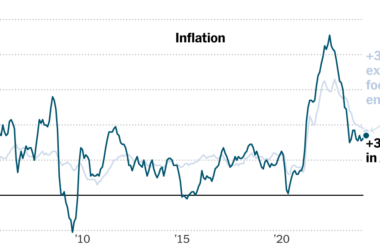Washington — The Home voted on Wednesday to approve a invoice that will develop the kid tax credit score and prolong some enterprise tax credit in a uncommon and long-sought bipartisan victory amid divided authorities.
The laws handed the Home in a 357 to 70 vote, far surpassing the two-thirds majority it required. 188 Democrats joined 169 Republicans in voting to approve the invoice, whereas 23 Democrats and 47 Republicans voted towards it. The measure now heads to the Senate.
Often called the Tax Aid for American Households and Employees Act of 2024, the laws would bolster the kid tax credit score, aiming to offer aid to lower-income households. Although it is extra modest than a pandemic-era enhancement of the credit score, which enormously diminished youngster poverty and resulted in 2021, Democrats have pushed to resurrect the help and customarily see the transfer as a constructive step.
The laws would make it simpler for extra households to qualify for the kid tax credit score, whereas growing the quantity from $1,600 per youngster to $1,800 in 2023, $1,900 in 2024 and $2,000 in 2025. It might additionally modify the restrict in future years to account for inflation. When in full impact, it may raise at the least half one million kids out of poverty, based on the Heart on Funds and Coverage Priorities.
Jabin Botsford/The Washington Submit by way of Getty Photos
The invoice additionally consists of some revived tax cuts for companies, like analysis and improvement deductions. These provisions appeared to make it extra palatable to congressional Republicans, a few of whom appeared reluctant to again the enlargement of the kid tax credit score and provides the Biden administration what it might see as a significant win in an election yr.
Home Methods and Means Committee Chairman Jason Smith, a Missouri Republican, and Senate Finance Committee Chairman Ron Wyden, an Oregon Democrat, unveiled the settlement earlier this month, touting the “widespread sense, bipartisan, bicameral tax framework that promotes the monetary safety of working households, boosts progress and American competitiveness, and strengthens communities and Foremost Road companies.”
“American households will profit from this bipartisan settlement that gives larger tax aid, strengthens Foremost Road companies, boosts our competitiveness with China, and creates jobs,” Smith stated in a press release.
The Home moved to vote on the laws below a process often known as a suspension of the principles on Wednesday, opting to fast-track the invoice with a ground vote that requires the backing of two-thirds of the chamber. The maneuver avoids a procedural vote that has proved troublesome in current months.
Home conservatives have on a number of events in current months blocked a vote to approve the rule for a invoice, which is usually wanted earlier than the complete chamber can vote. The transfer has made the GOP Home management’s job of steering laws by the chamber more and more tough, enabling a small group of detractors to successfully shut down the ground at their discretion.
On Tuesday, a gaggle of reasonable New York Republicans employed the tactic, blocking a rule vote in protest of the tax invoice missing state and native tax deductions. However the deadlock appeared to shortly dissipate after the group met with Speaker Mike Johnson.
Johnson stated he supported the laws in a press release forward of the vote on Wednesday.
“The Tax Aid for American Households and Employees Act is necessary bipartisan laws to revive conservative pro-growth tax reform. Crucially, the invoice additionally ends a wasteful COVID-era program, saving taxpayers tens of billions of {dollars}. Chairman Smith deserves nice credit score for bringing this bipartisan invoice by committee with a powerful vote of confidence, and for marking up associated payments below common order earlier on this Congress,” he stated. “This bottom-up course of is an effective instance of how Congress is meant to make regulation.”








